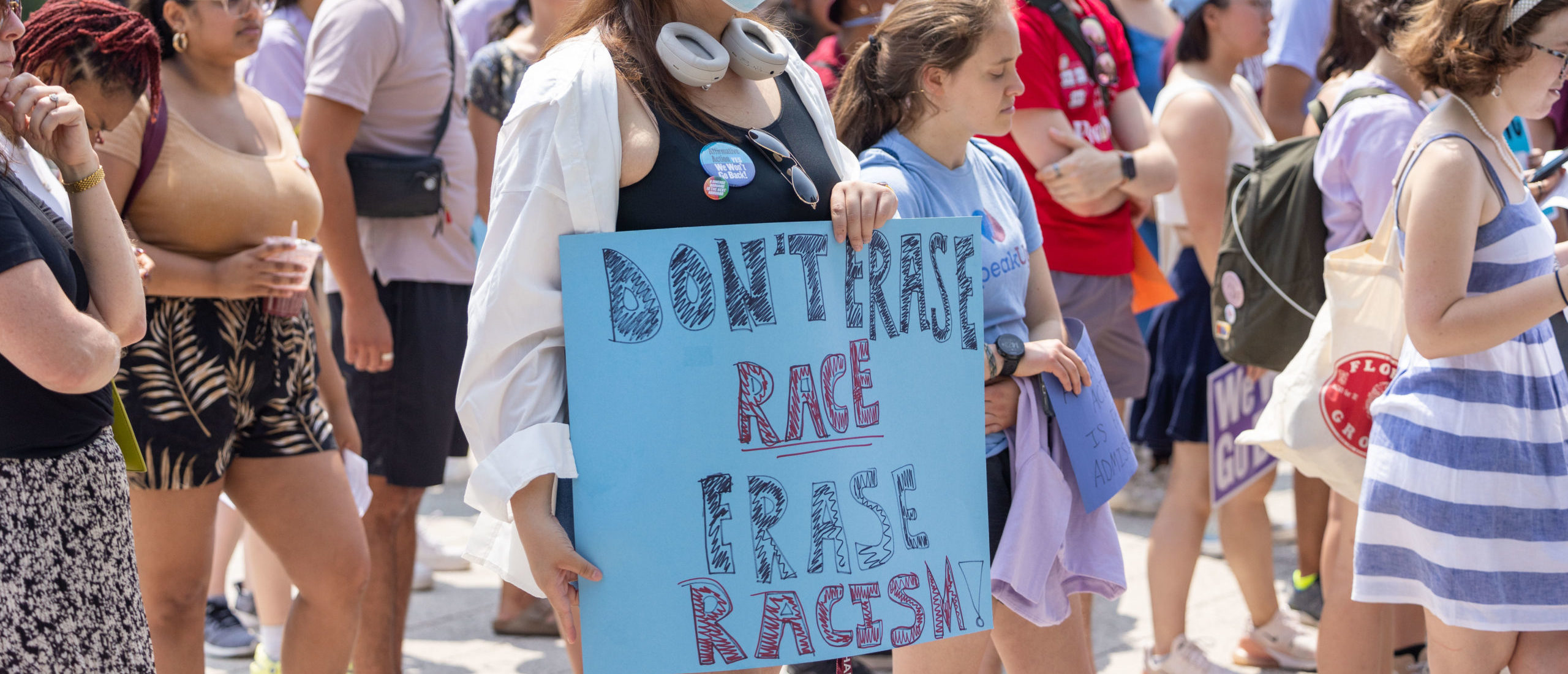Democrat and Republican appointees to the Equal Employment Opportunity Commission (EEOC) spoke Tuesday night about the future of workplace diversity, equity and inclusion (DEI) initiatives in light of the Supreme Court’s recent decision overturning racial preferences in college admissions.
EEOC Vice Chair Jocelyn Samuels and EEOC Commissioner Andrea Lucas tackled practices ranging from racial quotas to race-based mentorship programs — issues that have been the subject of increasing legal challenges. Both sought to model bipartisan debate on the hot-button issue while disagreeing on how corporate DEI programs will fare in the changing legal landscape created by the Supreme Court’s landmark affirmative action ruling.
Samuels, a Democrat appointed by former President Donald Trump as commissioner and designated Vice Chair by President Joe Biden, said her greatest concern is that too many employers will “walk away” from DEI after the ruling in the affirmative action cases, which doesn’t have a direct impact on such programs.
“The difference between DEIA and affirmative action initiatives is that difference between race-conscience and race-based considerations,” Samuels said.
“The vast majority of DEIA measures are race-conscious,” she continued. “They do not take race into account in individual employment decisions.”
Conservative groups have taken legal action against companies over initiatives like race-based fellowships and demographic quotas leading up to the ruling and increasingly after it. Earlier this year, America First Legal asked the EEOC to open civil rights investigations into companies like McDonald’s, Mars, Inc. and Anheuser-Busch over hiring quotas.
Samuels differentiated between quotas and goals, noting that most percentages are “aspirational” goals and not mandatory, and are achievable through race-neutral means. Employers are already required to make sure their policies do not have disproportionately negative effects on a particular protected group, she noted, suggesting DEI policy falls along the same lines.
“It’s not the employer’s fault that people of color have a lower rate of college degree attainment than white people,” Samuels said. “But it’s still the employer’s responsibility to really think hard about policies that would exclude people on the basis of race because of those societal trends.”
As long as companies’ DEI practices don’t cross over into creating disadvantages for specific individuals, Samuels said they are permissible and should be encouraged. (RELATED: Conservative Group Highlights Two More Law Firms As Potential Litigation Targets Over Race-Based Fellowships)

CAMBRIDGE, MASSACHUSETTS – JULY 1: Students and others gather at Harvard University’s Science Center Plaza to rally in support of Affirmative Action after the Supreme Court ruling on July 1, 2023 in Cambridge, Massachusetts. (Photo by Scott Eisen/Getty Images)
Lucas, a Republican Trump-appointee, argued that such aspirational goals will necessarily be met by picking people “based on their race.”
“I think [companies] want to do what is going to make them money and what is going to decrease their public relations nightmare,” Lucas said. “People are going to take the fast, and easy, and lazy route … just picking people based on their race or sex.”
While the state of employment law hasn’t changed, Lucas said the Supreme Court’s ruling is a “wake up call” for those who thought affirmative action’s permissibility in education might spill over into the employment realm, where race-based decision making is not allowed.
Lucas also said conservatives should emphasize the positive moral case for equality, rather than equity.
“What is a good and just diversity policy?” she asked. “It’s one that produces individual rights. It’s one that produces individual equality. It’s not based on group rights.”
All content created by the Daily Caller News Foundation, an independent and nonpartisan newswire service, is available without charge to any legitimate news publisher that can provide a large audience. All republished articles must include our logo, our reporter’s byline and their DCNF affiliation. For any questions about our guidelines or partnering with us, please contact licensing@dailycallernewsfoundation.org.


